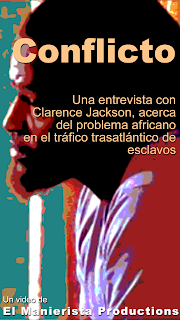This
is then how Igbo people organized their society, based in economical relationships
but not as political determinations; which keep dissociated of economic power,
and linked to age, as a gerontocracy nucleated in the family. That’s
why the system was able to regulate their political development, avoiding those
western sclerosis of Modernity; at least ‘till that same modernity overpowered
them, since the weakness of this model is its military disorganization.
Still
the system is so efficient, that allows its immediate reparation, as long as
people find a way back to the wild; that means, if only people are willing to leave
the accommodation of civilized society, and start from the ground. This Igbo
culture is especially interesting, because it allows the understanding of
African anthropologic structures; and in this sense, humanity evolves cellularly,
splitting societies when their overgrowth makes them sclerotic in their determinations.
That
explains the flexibility and adaptability of the Igbo pantheon, which is only
and organization of reality; subjected to the constant adaptation of the nature
it manifests in, with the specialized interpretation that adequate culture to
reality. Thus here lies the importance of the medicine men —root workers and
curanderos— as the priesthood, rather than philosophers; responsible for the
interpretation of this entanglement of determinations, and so organizing them
in an intelligible sense.
What’s
curious here is that this is how pantheons evolved in human history, even those
of Western civilizations; and not only with the fusion of religions but even in
its internal development, as in the case from Atonism to Christianity and
Islan. This is then what shows the resilience of human nature, over the
sclerotic decadence of its western structures; as the true consistence of
humanity, based on its own reality and not on the idea they have of themselves.
Everything
has been a just development, between these two splendors of Rome in antiquity and
the United States in postmodernity; and so the new developments would lie in
the cultural group that holds the functions of German at the moment of Rome
decadence. This would be the case of black people, as the ones stablishing their
own determinations to survive the crumbling of the structure; but for which
they need to do nothing else than preserve their own ancestrallity, because it’s
the only source of sense for the new reality; and other than that would be the
extension of the same crumbling structure, dragging us in its agony.




No comments:
Post a Comment